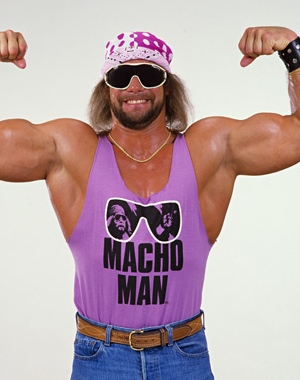
Everything runs away, beginning with who you are, and at some indefinable point you come to half understand that the ruthless antagonist is yourself.
Philip Roth, qtd. James Wood
A couple weeks ago, I watched a documentary called "Bigger, Stronger, Faster." This movie struck a nerve inside of me like no other movie has for the last six months. I identified with the director's quest for answers about thorny and controversial issues surrounding self-enhancement drugs. The synopsis for the movie states, "Metaphorically we are a nation on steroids. Is it any wonder that so many of our heroes are on performance enhancing drugs?"
Director Christopher Bell gives a portrait of America as a nation striving to be the best in every sector, especially sports. And then he asks: at what point does our need to be the best clash with doing the right thing? There is an underlying hypocrisy to being the best in America. Oftentimes, winning means lying, cheating, or tweaking the rules.
Which makes one think that steroids are bad; end of story. But the movie challenges our assumptions. In fact, I learned that anabolic steroids are neither as dangerous nor as life-threatening as the government and the media will have us think. It is only with excessive use that these drugs become detrimental, and even then the damage to the body is reversible. However, anabolic steroids and street drugs have long been grouped into the same category. Nobody is denying that there are undesirable side effects to steroids, but the leading scientists confess to a genuine lack of evidence about long-term dangers.
So then steroids and other self-enhancing drugs are okay? Right? The documentary is adept at dismantling each new assumption. Midway through the movie I began to see another side. There seemed to be some problems with using steroids that went beyond the drug itself.
The director interviews his own family to uncover these nuances. Mad Dog, his oldest brother, refuses to grow up. He cannot handle working with his father in the office, and we watch him prepare to leave for L.A. with his girlfriend, where he'll try to become a professional wrestler. He swears by his use of steroids; without them he would be nothing. There is a moment when the oldest brother talks about his dream to become a professional wrestler. Sadness and desperation eke out of his voice, and his monomaniacal conviction to follow his dream sounds slightly ridiculous. Strangely, Mad Dog was the brother I identified with the most. He's chasing something called "greatness".
The director's youngest brother, Smelly, coaches a high school wrestling team. He thinks it's alright to use steroids as long as you are "old enough". But during the movie he decides that he's going to stop taking steroids. His wife has recently had a child and the family has become important to him. He promises his wife he'll quit but later in the documentary he tells the camera he might go back.
I have a confession to make; I'm a recovering drug addict. I took Ritalin and Adderall without a prescription for three years while I was in college. And . . . after watching the documentary I began to justify self-enhancing drugs. The movie had some salient points. What's wrong with taking a drug to perform better? We all do it. Some of us have our coffee in the morning; others need a cigarette; others take their cholesterol medicine. And if Ritalin or Adderall are used in moderation--just like anabolic steroids--there are no real dangers.
Compound these rationalizations with the chance encounter I had with a short article in the New York Times entitled "A Case for Pills to Boost your Brain."
"So then I'm not the only one who thinks it's okay to take Ritalin!"
It wasn't long before I was looking up prices for Ritalin and Adderall on the Internet. Of course I didn't have a prescription, so I would have to order through some shady Mexican pharmacy.

For those who are consumed by the need to be the best, a drug that promises an edge can mean the world. When your ability is your identity, the notion of a magic pill seduces. A couple days ago my best friend told me about a drug called Provigil, which was originally invented to treat narcolepsy. Since its inception in 1998, the drug has found countless uses not only for narcoleptics but for anyone who wants to stay awake and pay attention. Part of this drug's appeal is the surprising absence of side effects. Because it is stimulant-like, and not an actual stimulant, the drug does not cause addiction.
Dr. Joyce Walsleben, director of the New York University Sleep Disorder Center, writes, "Should people just use it because they'll feel better and stay awake? That's a question for society to answer. Is Provigil better than drinking six cups of coffee and getting an ulcer? Is it better to fall asleep and drive into a tree?" (Salon)
Ever since childhood I've dreamed of becoming someone different, someone greater than myself. Even in adulthood I am swayed by a fantasy of sudden transformation. I want to be the best at what I do--not a mediocre nobody. I want to be someone. This urge is intrinsic in humans although we express it in different ways. All of us want to be special, admired, loved, known.
I flirted with the idea of going back on cognitive-enhancing drugs. I sat in front of the computer at 2 a.m. debating whether I should begin taking drugs again. What for?
Well, for one thing, I would like to be more productive. I'm not satisfied with my level of output. To become a great writer, which is my goal, you have to write a lot. You have to write every day, say, five to ten pages, or you'll never improve. I'm simply not writing enough in order to meet this goal of mine. (I tell myself this over and over again. I even feel guilty.) And I'm almost convinced that Ritalin or Adderall or Provigil is the only thing that will transform me.
The next morning, I'm standing by the kitchen counter, preparing a bowl of cereal for breakfast. I hear my girlfriend yell from upstairs, "Mad Dog is dead."
"Who?"
"Mad Dog. From the movie. He died in a rehab center this morning."
It has been nearly three weeks since I saw the documentary, but the characters come back to me in an instant. The searching, conflicted director, the determined, monomaniacal brothers, the broken, defeated parents.
"What happened?" I ask my girlfriend.
"He took too many painkillers."
"Oh--"
Maybe I should reconsider my desire to be the best.
Stumble this article!
Update: I recently found a relevant blog post by Malcolm Gladwell, author of Blink and the Tipping Point.
















